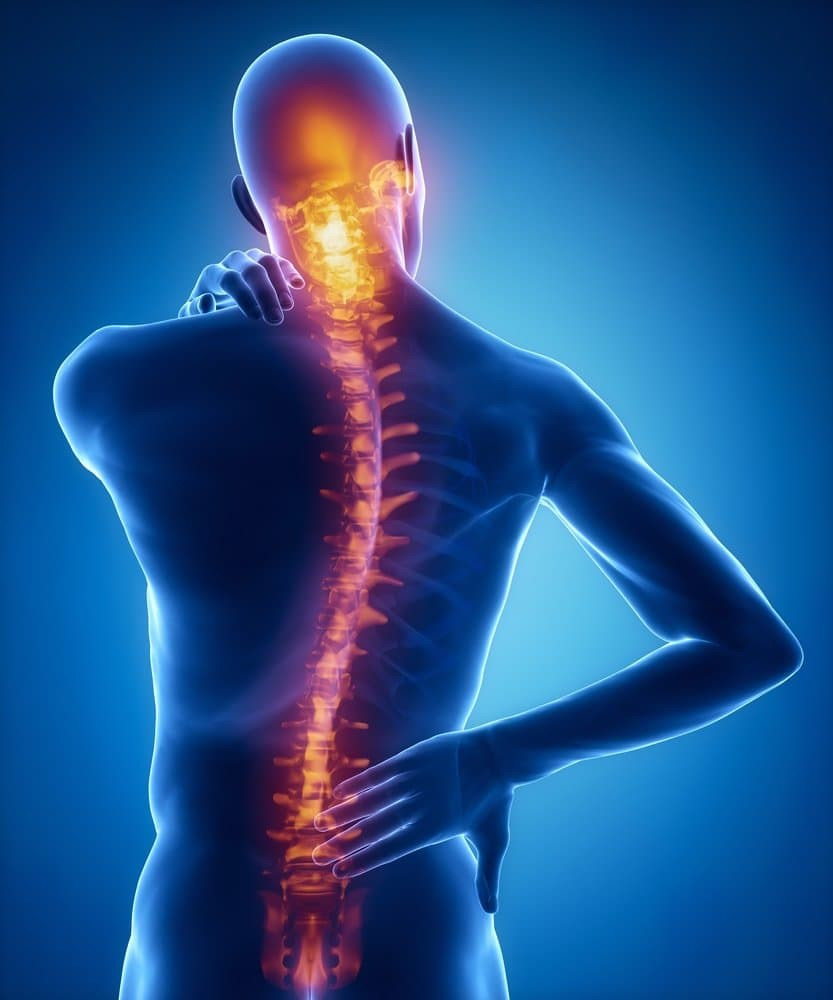Definition
Peripheral neuropathy refers to damage to the peripheral nerves, which are located outside the brain and spinal cord. This condition can result in numbness, pain, or weakness in the limbs, primarily affecting the hands and feet. However, it can also affect other parts of the body, such as the digestive system, urinary tract, and blood vessels.
The peripheral nervous system transmits information from the central nervous system (the brain and spinal cord) to the rest of the body, while peripheral nerves send sensory information from the senses to the central nervous system.
Peripheral neuropathy can affect a single nerve (mononeuropathy), two or more nerves in different areas (multiple mononeuropathy), or many nerves (polyneuropathy). Carpal tunnel syndrome is an example of mononeuropathy. Most cases of peripheral neuropathy are of the polyneuropathy type.
Peripheral neuropathy can result from injury, infection, electrolyte disturbances, inherited disorders, or exposure to toxins. One of the most common causes is diabetes. People with peripheral neuropathy often describe the pain as stabbing, burning, or tingling. In most cases, symptoms will gradually improve, especially if caused by a treatable condition. Medications can reduce pain in peripheral neuropathy.
Causes
Peripheral neuropathy can be caused by various health conditions, such as:
- Diabetes: The most common cause. More than half of diabetes patients experience neuropathy.
- Autoimmune diseases: Such as Sjogren's syndrome, lupus, rheumatoid arthritis, Guillain-Barre syndrome, chronic inflammatory demyelinating polyneuropathy, and vasculitis.
- Infections: Including certain viral or bacterial infections, such as Lyme disease, shingles, Epstein-Barr virus, hepatitis B and C, leprosy, diphtheria, and HIV.
- Inherited disorders: Like Charcot-Marie-Tooth disease.
- Tumors: Both malignant (cancer) and benign tumors can press on nerves. Polyneuropathy can also arise from cancer-related immune responses, known as paraneoplastic syndromes.
- Bone marrow disorders: These include monoclonal gammopathies, bone cancer (myeloma), lymphoma, and rare diseases like amyloidosis.
- Other diseases: Including kidney disease, liver disorders, connective tissue disorders, and hypothyroidism.
Other causes of neuropathy include:
- Alcoholism: Poor diet in alcoholics can lead to vitamin deficiencies essential for nerve health.
- Toxins: Including industrial chemicals and heavy metals like lead and mercury.
- Certain medications: Especially chemotherapy drugs used to treat cancer.
- Injury or pressure on nerves: Injuries, such as traffic accidents, falls, or sports injuries, can sever or damage peripheral nerves. Nerve pressure can result from using casts, crutches, or repetitive movements like typing.
- Vitamin deficiencies: Vitamins B1, B3, B6, B12, and E are vital for nerve health.
- Idiopathic cases: Some cases have no known cause.
Risk factor
Risk factors for peripheral neuropathy include:
- Diabetes: Especially if blood sugar levels are not well controlled.
- Alcohol abuse
- Vitamin deficiencies: Particularly B vitamins.
- Infections: Such as Lyme disease, shingles, Epstein-Barr virus, hepatitis B and C, and HIV.
- Autoimmune diseases: Such as rheumatoid arthritis and lupus, where the immune system mistakenly attacks the body's cells.
- Kidney, liver, or thyroid disorders
- Exposure to toxins
- Repetitive movements or vibrations: Like writing, typing, or driving.
- Family history of neuropathy
Symptoms
Each nerve in the peripheral system has a specific function, so symptoms depend on the type of nerve affected. Nerves are classified into:
- Sensory nerves: Receive sensations such as temperature, pain, vibration, or touch from the skin.
- Motor nerves: Control muscle movement.
- Autonomic nerves: Control blood pressure, sweating, heart rate, digestion, and bladder function.
Signs and symptoms of peripheral neuropathy include:
- Increasing numbness
- Tingling or prickling in feet or hands
- Sharp, jabbing, throbbing, or burning pain
- Sensitivity to touch
- Pain during activities that shouldn’t cause pain: Such as pain in the feet when bearing weight or when covered by a blanket.
- Lack of coordination and falling
- Muscle weakness
- Feeling like you’re wearing gloves or socks when you’re not
- Paralysis if motor nerves are affected
If autonomic nerves are involved, possible signs and symptoms include:
- Heat intolerance
- Excessive sweating or inability to sweat
- Digestive or urinary problems
- Blood pressure drops, causing dizziness or light-headedness
Diagnosis
To diagnose peripheral neuropathy, doctors will perform several examinations, including:
- Complete medical history: Review your symptoms, lifestyle, exposure to toxins, alcohol use, and family history of nervous system diseases.
- Neurological examination: Checking tendon reflexes, muscle strength and tone, ability to feel certain sensations, and posture and coordination.
Additional tests may include:
- Blood tests: To detect vitamin deficiencies, diabetes, abnormal immune function, or other conditions causing peripheral neuropathy.
- Imaging tests: CT scans or MRIs can show if there are issues in the spine, pinched nerves, tumors, or other abnormalities affecting blood vessels and bones.
- Nerve function tests: Such as electromyography (EMG), which records electrical activity in muscles to detect nerve damage.
- Other nerve function tests: For example, autonomic nerve tests, sweat tests, and sensory tests that measure how you feel touch, vibration, cold, or heat.
- Nerve biopsy: Removing a small nerve sample, usually a sensory nerve, to look for abnormalities.
- Skin biopsy: Taking a small skin sample to examine nerve endings.
Management
The goal of treating peripheral neuropathy is to manage the condition causing it and relieve symptoms. If lab tests show no problems, doctors will observe the patient's symptoms to see if the neuropathy improves or worsens.
Medications are also used to relieve symptoms, including:
- Pain relievers: Over-the-counter pain medications can relieve mild symptoms. For more severe symptoms, doctors will prescribe stronger painkillers.
- Anti-seizure medications: Drugs like gabapentin and pregabalin, typically used for epilepsy, can also relieve nerve pain. Side effects may include drowsiness and dizziness, and these drugs require a prescription.
- Topical treatments: Such as patches containing a low dose of anesthetic, can also relieve nerve pain. Side effects can include drowsiness, dizziness, or temporary numbness at the application site.
- Antidepressants: Tricyclic antidepressants, such as amitriptyline, doxepin, and nortriptyline, can help alleviate pain by affecting chemical processes in the brain and spinal cord that cause pain. Serotonin and norepinephrine reuptake inhibitors like duloxetine, venlafaxine, and desvenlafaxine can also relieve diabetic peripheral neuropathy pain. Side effects include dry mouth, nausea, drowsiness, dizziness, appetite changes, weight gain, and constipation, so these drugs require a prescription.
Other therapies and procedures that can help relieve peripheral neuropathy symptoms include:
- Transcutaneous electrical nerve stimulation (TENS): Electrodes placed on the skin deliver gentle electrical currents at varying frequencies. TENS should be done for 30 minutes daily for about a month.
- Plasma exchange and intravenous immune globulin: These procedures can help suppress immune system activity, benefiting people with certain inflammatory conditions. Plasma exchange involves taking blood, separating antibodies and proteins from the blood, and returning the blood to the body. Intravenous immune globulin therapy involves giving high levels of proteins that act as antibodies.
- Physical therapy: If you have muscle weakness, physical therapy can help improve your movement. You may also need hand or foot braces, canes, walkers, or wheelchairs.
- Surgery: If your neuropathy is caused by pressure on a nerve, such as from a tumor, surgery may be necessary to reduce the pressure.
Complications
Complications of peripheral neuropathy can include:
- Burns and skin injuries: Caused by not feeling temperature changes or pain in numb areas.
- Infections: Feet and other numb areas are prone to injury without the patient noticing. Regularly check these areas and treat minor wounds before they become infected, especially if you have diabetes.
- Falls: Muscle weakness and loss of sensation can lead to poor balance and falls.
Prevention
The best way to prevent peripheral neuropathy is to address and control its underlying causes such as diabetes, alcoholism, or rheumatoid arthritis. Adopting a healthy lifestyle supports nerve health. Healthy lifestyle practices include:
- Consume healthy foods. Good nutrition is crucial for sufficient vitamin and mineral intake. Eat foods rich in fruits, vegetables, whole grains, and lean proteins to maintain nerve health. Prevent vitamin B12 deficiency by consuming meat, fish, eggs, low-fat dairy products, and fortified cereals.
- Exercise regularly for at least 30 minutes to one hour, at least three times a week. Regular exercise such as walking three times a week can reduce neuropathic pain, increase muscle strength, and help control blood sugar levels. Light exercises like yoga and tai chi can also help alleviate symptoms.
- Take care of your feet, especially if you have diabetes. Check daily for any cuts, wounds, or calluses on your feet. Wear soft, loose cotton socks and comfortable shoes.
- Avoid factors that can cause nerve damage, including repetitive movements, positions that put pressure on nerves, and exposure to toxic chemicals.
- Quit smoking. Smoking can affect blood circulation to the nerves, increase the risk of foot problems, and other complications of neuropathy.
- Avoid excessive alcohol consumption. Alcohol can worsen peripheral neuropathy.
- Monitor your blood sugar levels. If you have diabetes, regular monitoring will help keep your blood sugar under control and reduce complaints.
People at risk of peripheral neuropathy should undergo regular peripheral nerve checks as recommended by their treating physician.
When to see a doctor?
Consult a doctor promptly if you experience unusual symptoms such as tingling, numbness, weakness in limbs, or pain in your hands and feet. Early diagnosis and appropriate therapy can alleviate symptoms and prevent more severe peripheral nerve damage.
Looking for more information about various other diseases? Click here!
- dr Ayu Munawaroh, MKK
Peripheral neuropathy. (2021). Retrieved 30 November 2021, from https://www.mayoclinic.org/diseases-conditions/peripheral-neuropathy/symptoms-causes/syc-20352061
Carey E. (2021). Peripheral neuropathy. Retrieved 5 Desember 2021, from https://www.healthline.com/health/peripheral-neuropathy
Peripheral neuropathy fact sheet. (2018). Retrieved 5 Desember 2021, from https://www.ninds.nih.gov/Disorders/Patient-Caregiver-Education/Fact-Sheets/Peripheral-Neuropathy-Fact-Sheet
Peripheral neuropathy. (2019). Retrieved 5 Desember 2021, from https://www.nhs.uk/conditions/peripheral-neuropathy/
Robinson J. (2020). Understanding peripheral neuropathy - the basic. Retrieved 5 Desember 2021, from https://www.webmd.com/brain/understanding-peripheral-neuropathy-basics
Peripheral nerve disorders. (2020). Retrieved 5 Desember 2021, from https://medlineplus.gov/peripheralnervedisorders.html












